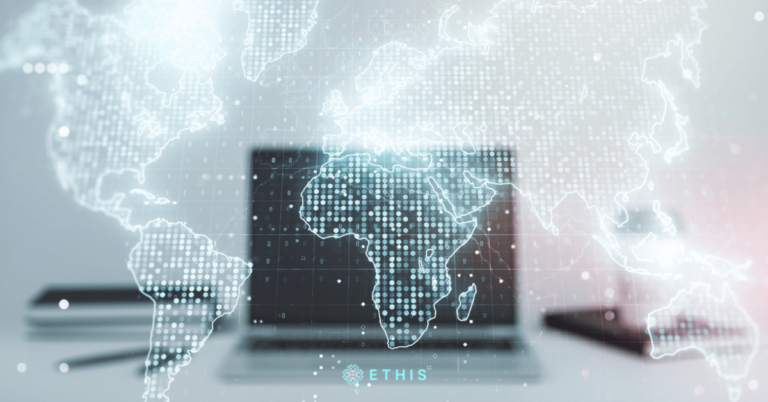
By Dr. Faraz Umair Afzal
A decent amount of global exposure has been gained by the Islamic finance sector over the past ten years. Islamic finance is now widespread in areas like the Middle East and the Asia Pacific. The sector is growing more and more with time.
Islamic financial instruments have much-hidden potential which is yet to be unleashed. In the past, the small range of investments, financing, treasury solutions, and cash management offered by Islamic finance as opposed to the conventional banks limited and hampered the ability of a corporate treasury to mitigate funding, foreign exchange, payments, and business risk in a shariah-compliant manner.
But this was the case in the past. As of now, there has been considerable product development in the investment banking and Islamic insurance areas of Islamic finance. Today many consider Islamic offerings to be on par with the conventional banks offering.
Islamic Murabaha is used in cross-border trade, it has become one of the most commonly used forms of Islamic financing. In Murabaha, the bank buys the assets at the request of the client and then the asset is sold to the client at the purchase price along with the negotiated profit on a deferred payment basis. Results were not what the advocates of Islamic financing predicted and a few issues had to be addressed.
The first thing that the practitioners became aware of was that participation financing could be very risky. The interest rates of conventional banks placed a limit on the participation ratios of the Islamic banks as investors compared Islamic banks services with their conventional counterparts. Riba is forbidden in trade whereas profit from trade is allowed, so instead of providing money, the Islamic bank provides goods to their clients.
Related: Can Islamic Finance Serve 2 billion Muslims?
Murabaha in practice
In international trade, banks would rarely own the asset or goods desired by the client (importer) when the initial agreement of Murabaha to finance the goods is reached. The traditional Murabaha would be insufficient to deal with this matter as the asset is not owned by the bank. To enable Murabaha for international trade, a solution was eventually found, and it was to separate the client’s promise to buy from the Murabaha sale.
The contract is only contracted when the bank owns the asset. There are objections from Hanbali and Maliki scholars who say that this is simply a device that is used to gain an illegal end through legal means. Another Islamic jurist M. Siddiqi argues that modern Murabaha allows the buyer to finance the purchase with deferred payment to enable the bank to earn a predetermined profit rate without the bearing of any of the risk. If the banks charge the fee on the duration of credit rather than on calculation of its risk exposure, then this closely resembles interest.
However, these objections are nullified because the modern Murabaha contract involves the title of ownership passing to the bank at an identifiable point in time. In the process, the financier assumes risks between purchase and resale which makes things legitimate by Islamic Shariah. On the other hand, conventional banks give the money to the client to buy the asset along with the added risk involved. Clients would prefer Islamic Murabaha for cross-border trade as they would have less worry about the buying process.
For instance, let’s say an importer wants to buy (import) machinery. The importer goes to a conventional bank and the bank will give the client the money to buy the machinery. The client will now have to find a machine all by himself. This might not be that easy, as he might buy a defective or old machine portrayed as a new one. The client has to deal with the consumer decision process and the money he needs to give back in full plus interest. He would have to pay the loan even if he was scammed when buying the machinery. Whereas if he would have used this Islamic financial instrument known as Murabaha, the risk part is transferred to the bank’s side. He would be assured that the machinery that he is buying from the bank is legitimate.
It would be the bank’s job to find the best machinery out there in the market and make sure it’s what is required. Banks would be the ones who will go through the buying decision process. It makes things a whole lot easier for the importer. If he was given the money, he would have to cross borders to find the right machine. This onerous step is taken out of the equation when using Murabaha.
Related: Shariah Compliant Investments & Social Impact
Hire Purchase


Hire Purchase is used to finance imports. It is joint ownership between the importer and the bank. The bank purchases the import in its name and gives it to the importer for usage. The importer will pay fixed rental monthly payments along with the principal. After payment has been made the ownership is transferred to the importer.
Bai Salam


This is an Islamic contract that takes place between an importer (purchaser of goods) and an exporter (supplier of goods). In this case, the purchaser has to pay full in advance and the goods are deferred to a later date in the future. The agricultural sector makes use of this contract.
At the time of contracting, the goods that the purchasers want to buy and pay in advance for do not exist. Let’s say for instance Sabah Palm Oil Growers (SPOG) has received an order to produce palm oil for a refinery that is willing to pay the market price through a letter of credit. SPOG needs to produce 100,000 tons of palm oil and to do so it needs RM100,000 in cash. Maybank, for example, (the financing bank) buys the nonexistent palm oil from SPOG and pays RM250,000 in advance.



Later it sells the palm oil to the refinery and delivers the goods in one year. For Maybank to buy palm oil from Sabah Palm Oil Growers, the price has to be lower than the market price. The bank makes a profit as it will sell the palm oil to the refinery at the market price (RM300,000). It is permissible for the bank to make a profit as it has received an LC (the sale is settled) to cover the risk associated as the buyer could also change his mind. Salam should be used for cross-border trade as it is beneficial for all the parties. The focal object of Bai Salam is to prevent farmers from getting into debt to meet their needs to grow the goods ordered so they are paid in advance.
Istisna


This is another type of Islamic financial instrument that can be used in cross-border trade. Istisna is similar to Bai Salam.
The main difference is that it is concerned with the manufacturing field and the payment is not paid in full at the time of contract and instead it is paid in intervals. So Istisna is a sales contract between the manufacturer and the bank.
The manufacturer delivers the asset at a predetermined price and future date. A chip manufacturing company receives an order of 50,000 chips from a car company. The cost of manufacturing 50,000 is RM25,000 and the car company is going to buy it for RM60,000. The time for manufacturing is six months.
If the manufacturing company doesn’t have RM25,000, it can go to the bank for an istisna contract. The bank buys the 50,000 chips for RM55,000 and releases payments to the manufacturing company. The bank then sells the 50,000 chips to the car company for RM60,000. The usage of Bai Salam and Istisna helps both the seller and buyer and the financing institution in between. The contracts are based on profits and help eradicate interest.
More recent developments
Islamic finance trade instruments were introduced back in the 1990s due to the need for use in international trade. Most of the products used in international trade are the same as that of conventional banks like Letter of Credit, Accepted Bill, and Shipping Guarantee.
A few amendments have been made to these products so that they can comply with Shariah law. The Islamic financial instruments thus produced were called Kafalah, Wakalah, and Hawalah. International trade can easily adopt these, especially in Muslim majority countries.
Kafalah guarantees are used to secure obligations and protect the debt amount from being defaulted. It gives banks guarantees and shipping guarantees. Kafalah plays an important role in international trade.The bank is asked to be a guarantor of payment in cross-border trade transactions. Islamic financial institutions can offer services like Bank Guarantee, Letter of Credit, and Shipping Guarantee while utilising the concept of Kafalah. If the client defaults the bank will pay off the liability. This helps manufacturers or exporters by safeguarding them with a 100 percent guarantee of payment. This encourages exporters to export.
Wakalah is the act of one party delegating another party to act on its behalf. In Wakalah contracts, the profit or actual profit is distributed on the profit ratio agreed upon at the time of contract. The bank tells the customer the expected profit as the bank invests in selected instruments. The banks also take a wakil (agency) fee which is also agreed upon at the time of contract. If the profit is generated more than the expected profit, it is retained by the wakil as an incentive. Wakalah can promote cross-border investing which can be beneficial to both parties and the bank.
Hawalah is a transfer of debt from the original debtor.
Related: Islamic Finance Contract: Mudharabah
Musharakah
Musharakah is a relationship established under a contract. According to this contract, the profit and losses are shared among the two parties involved in the contract. This is through mutual consent. The profit and loss are to be shared on an agreed-upon ratio.
Musharakah is the most appropriate method of financing exports. The agreement is made between the exporter and the bank. They agree upon a sharing ratio, the ratio determined is through mutual consent. The exporter will manufacture the units which are to be exported and will export them, the profit obtained is shared between the bank and the exporter at the agreed ratio. However, the bank can suffer in certain cases like if the importer refuses to accept the goods due to quality issues and then the bank suffers badly. However, this can be avoided easily by adding a clause in the Musharakah contract that if the exporter fails to meet the terms and conditions of the importers, the bank will take no part in the loss.
Conclusion
The expansion and the development of Islamic financial instruments depend upon the introduction of new and innovative shariah-compliant financial products. The current problems Islamic financial instruments face should be resolved at the earliest as it will increase their demand and liquidity. Conventional financial products have been in the international market for decades. The Islamic financial products mentioned above are free from riba making them ideal for cross-border trade for Muslims.
About 1.9 billion Muslims are spread across the globe, and there are fifty Muslim majority countries. There is a huge market for Islamic financial instruments. We know that Interest is prohibited in Islam, but interest may not be ideal for non-Muslims as well, because as in Musharakah the profit-sharing ratio might be more lucrative than the interest rates. Bai Salam promotes farming, and it resolves a lot of issues that farmers face. The farmers are paid in full and remain free from debt.
Nevertheless, there are certain issues with some Islamic financial products when they are used for international trade like the modern Murabaha which some jurists have issues with. These issues can be resolved over time, they just need a few amendments to be made to Islamic financial products so that they can be used efficiently without any issues for cross-border trade.
Read more about Islamic Investing





Top Posts
Islamic P2P Crowdfunding Explained
How to Earn Halal Money? The Money Mindset
Halal Investments for Singapore Muslims? It’s time for a shake-up in the Islamic Investments scene.
Smart investment for making Halal money
3 Reasons Why Property Crowdfunding is the Smart Investment for You